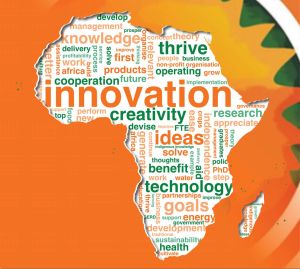The African continent, once perceived as an untapped reserve of potential, is currently witnessing an unprecedented surge in groundbreaking startups. In the spotlight are the top 10 innovative startups in Africa that are catalyzing transformative shifts across industries while propelling remarkable economic growth.

On a global scale, African entrepreneurs have risen to prominence in recent years. Just a decade ago, the concept of unicorn startups, those valued at over one billion dollars, was a foreign idea for the people of Africa. Yet, by 2021, the continent had witnessed four startups achieve this coveted status. Today, that number has swelled to ten startups, each commanding a valuation exceeding $1 billion.
Central to this flourishing trend are innovative startups propelled not solely by profit motives, but by an unwavering commitment to tackling societal challenges, revolutionising established sectors, and elevating the quality of life for countless individuals.
To recognise their outstanding contributions, here are the Top 10 Innovative Startups in Africa: a diverse collection of companies that are making waves across various sectors.
Flutterwave: Flutterwave is a trailblazer in the payment technology sector. Founded in 2016 by CEO Olugbenga Agboola, this company boasts a remarkable presence in 11 African countries, facilitating payments in over 250 currencies. With USD 234.7 million in funding from over 40 investors, Flutterwave is revolutionising the fintech landscape and championing financial inclusion.
GroIntelligence: Sara Menker’s brainchild, GroIntelligence, is transforming agriculture in Africa. By providing a data-driven platform that unravels the intricate relationships between food, climate, trade, and agriculture, this startup addresses crucial challenges in the sector. With USD 115.3 million in funding, GroIntelligence is reshaping the way we approach food production and security.
Andela: This Nigerian startup bridges talent gaps by connecting software engineers in emerging markets with companies worldwide. With over a thousand engineers working across several African countries, Andela leverages its USD 381 million in funding to create a global network of skilled professionals.
54gene: Delali Attipoe’s brainchild, 54gene, is harnessing the power of genomics to tackle healthcare challenges in Africa. With USD 44 million in funding, this health tech company is generating invaluable data to unravel genetic variations and drive advancements in medical research.
Smile Identity: Spearheaded by Mark Straub and William Bares, Smile Identity is at the forefront of identity verification and KYC compliance in Africa. This startup’s innovations cater to payment companies, creating a secure ecosystem for transactions. Its USD 11.1 million in funding reflects the importance of data security in today’s digital world.
Opay: With a funding of USD 570 million, Opay is transforming financial services in Nigeria. Its diversified portfolio, which includes OKash, ORide, and OWealth, is a testament to its innovation in fintech. While its impressive user base and daily transaction value are indicative of its rapid growth, the company faces the challenge of expanding beyond its Nigerian stronghold.
Expensya: Expensya is simplifying expenses management for businesses across Africa with its innovative accounting SaaS platform. Its creative use of AI has streamlined accounting processes, reducing errors and costs. With USD 25.6 million in funding, Expensya is poised to reshape financial management across the continent.
Vybe: Vybe is shaking up the dating industry in Africa with its innovative approach to online connections. In a sector with untapped potential, this startup is making strides toward becoming a market leader. Its estimated annual revenue of USD 22.4 million and unique offline matchmaking service showcase its promise.
Sokowatch: Sokowatch is revolutionising retail distribution in Africa by enabling informal retailers to order products through a mobile app. With USD 18.6 million in funding and a footprint across several African countries, this Kenyan startup is driving customer satisfaction and economic growth.
Onboard: Tunisian startup Onboard is transforming customer experience management by converting textual manuals into 3D models. Despite its relatively modest funding of USD 240,000, Onboard’s innovative approach is driving transformation in the manufacturing sector.
Innovative startups in Africa: Overcoming challenges and pioneering progress and economic growth
According to the African Private Capital Activity Report, fundraising from private capital hit an all-time high of $4.4 billion in 2021, marking a 63% surge compared to the annual average fundraising of $2.7 billion recorded between 2016 and 2020. In total, Partech’s analysis revealed that 640 startups managed to secure 681 equity rounds.
However, unlocking Africa’s complete business potential necessitates the resolution of numerous challenges. It is approximated that about 70% of African startups confront obstacles in accessing both talent and capital required for their growth. The initial six months of 2022 witnessed a mere 27% of startups being founded by women, and investments originating from within Africa contributed to just 29% of the overall funding.
Establishing a diverse domestic startup ecosystem stands as a pivotal factor for sustaining growth momentum and amplifying the ongoing technological and digital transformation. The framework for this ecosystem should encompass African VC firms, accelerators, support programs for entrepreneurs, as well as grants provided by governmental and non-profit entities.
The success of various innovation startups in Africa underscores their pivotal role in driving innovation, economic growth, and job creation in Africa. As Africa transitions from its historic role in administration to a thriving ecosystem of innovation and technology, these startups are poised to shape the future of industries and economies across the region.

With a driving passion to create a relatable content, Pallavi progressed from writing as a freelancer to full-time professional. Science, innovation, technology, economics are very few (but not limiting) fields she zealous about. Reading, writing, and teaching are the other activities she loves to get involved beyond content writing for intelligenthq.com, citiesabc.com, and openbusinesscouncil.org




























